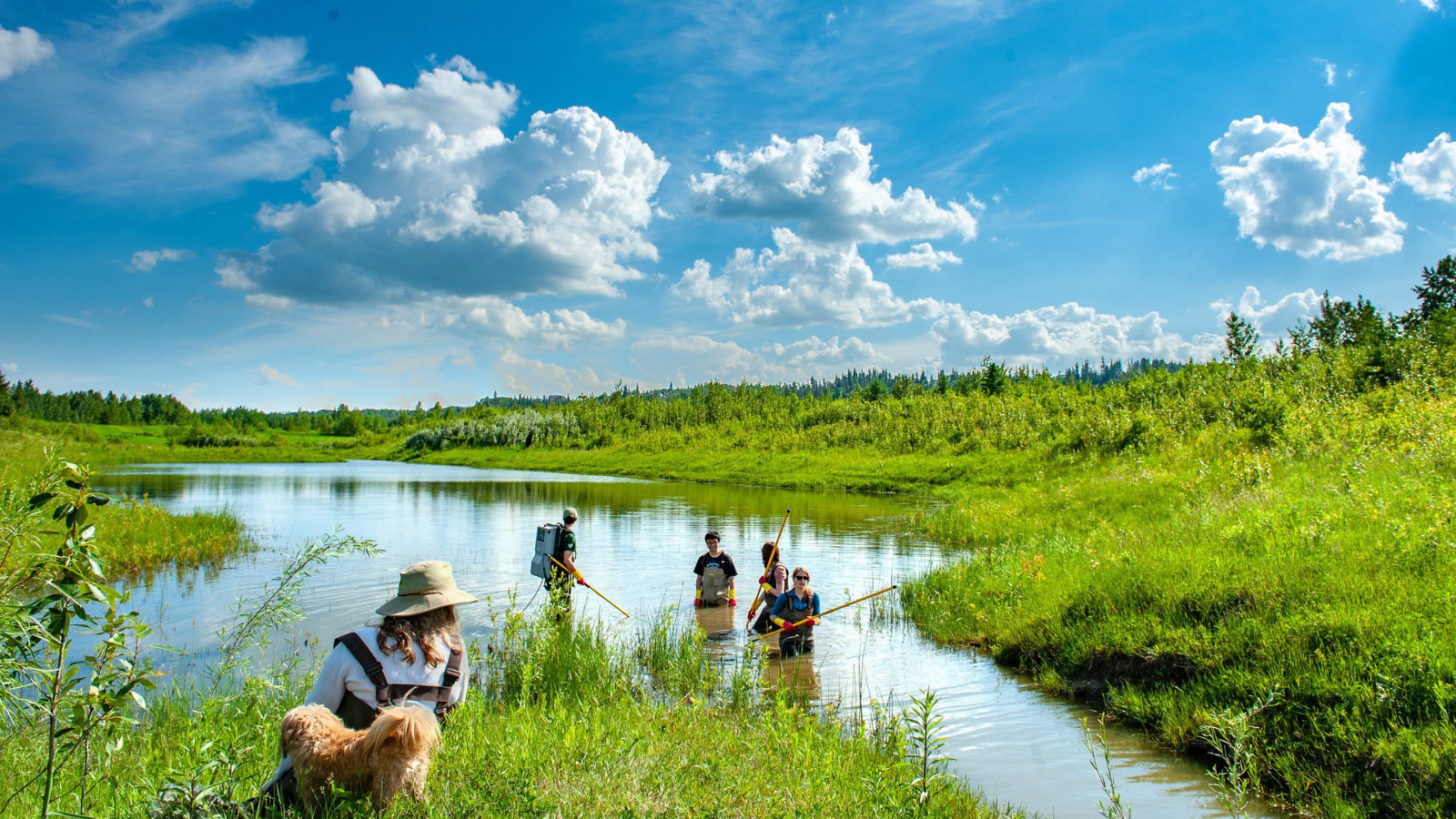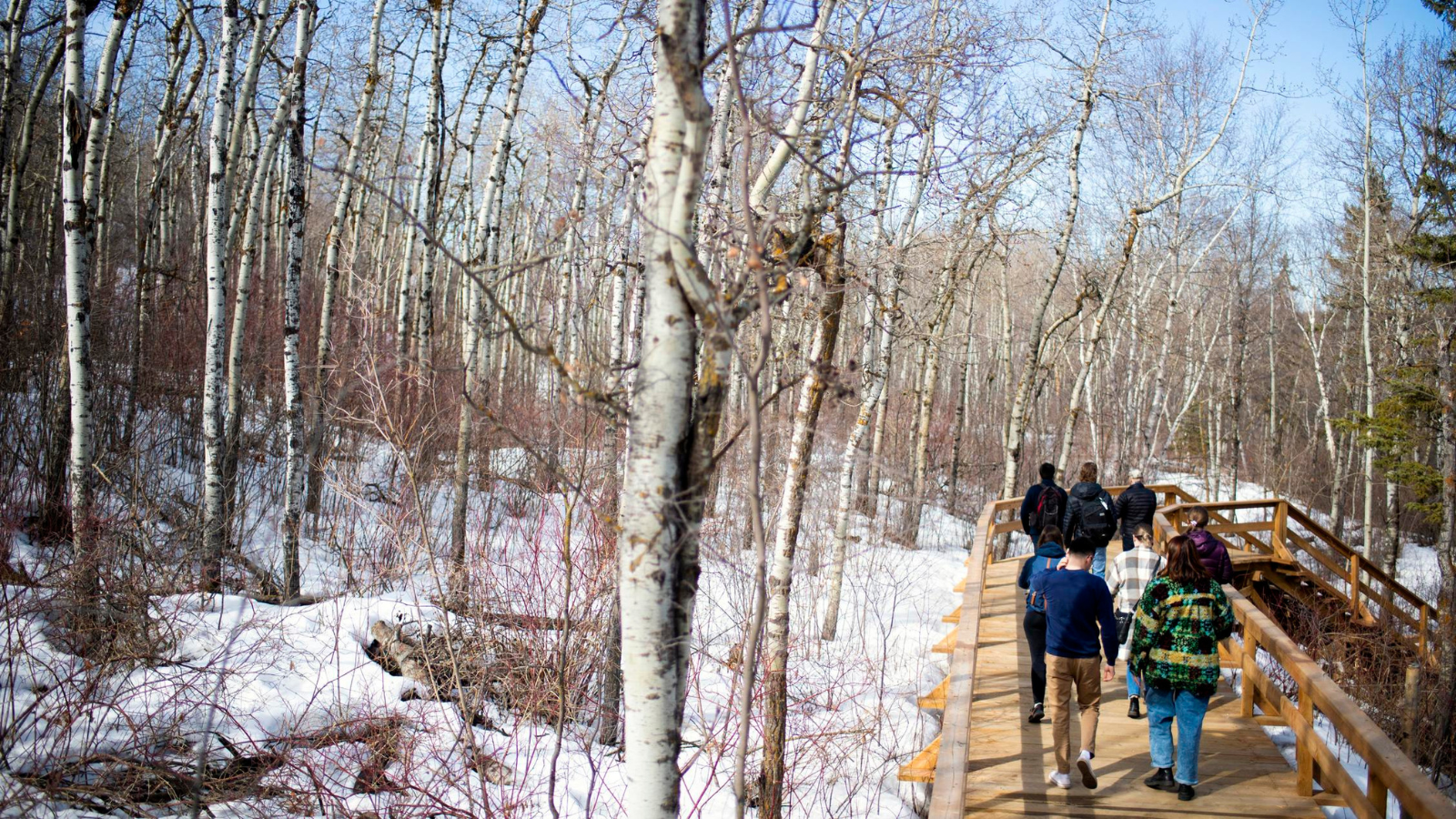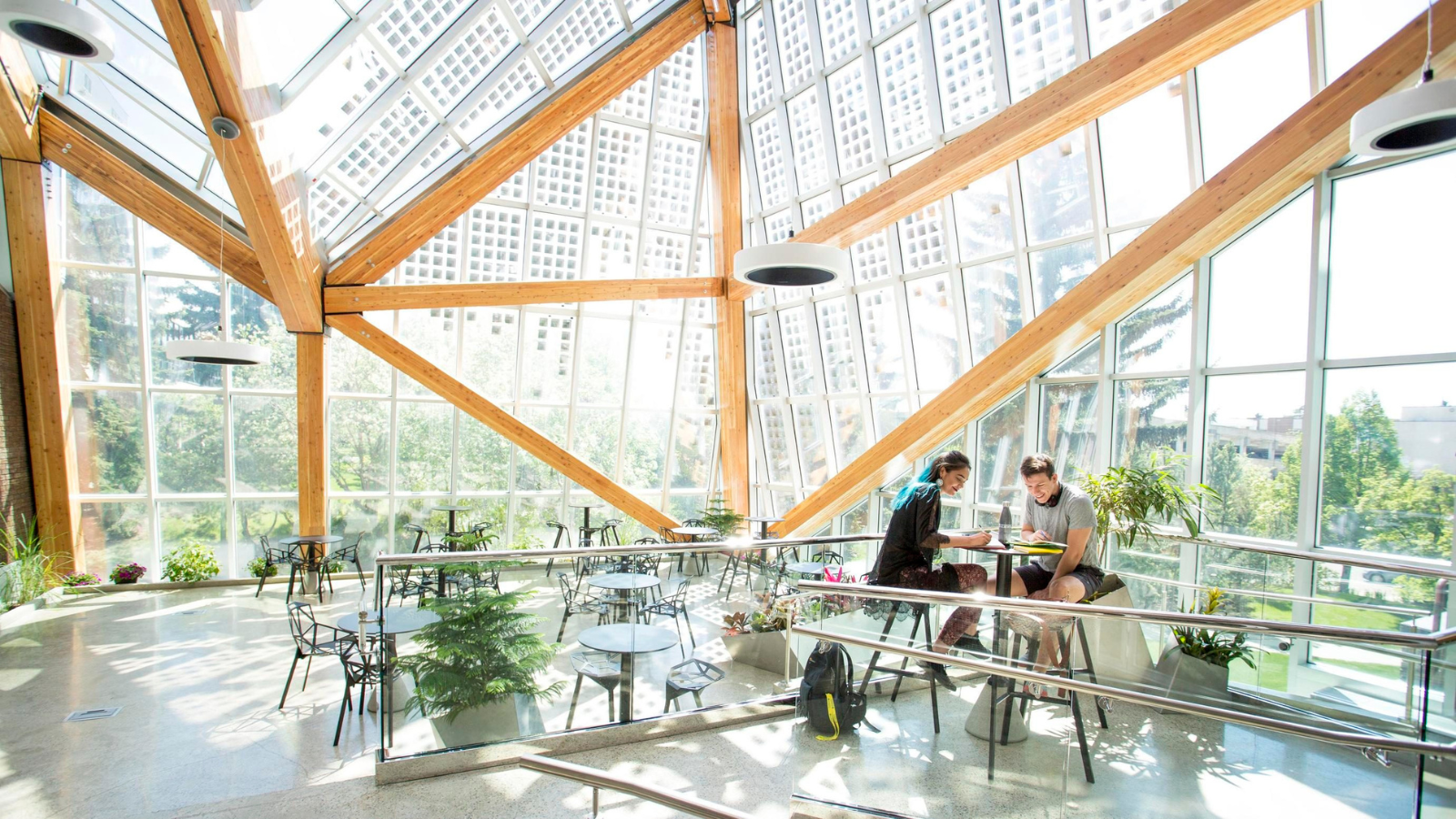Bachelor of Arts in Environmental Studies

Why Study the Environment?
It will take interdisciplinary expertise to solve the world’s complex environmental problems, such as climate change, natural resource depletion, pollution and biodiversity loss. To equip our future leaders to tackle these challenges, the Faculty of Agricultural, Life & Environmental Sciences and the Faculty of Arts have partnered to offer the Bachelor of Arts in Environmental Studies. This flexible, collaborative program also draws on the Faculties of Native Studies and Science to expose students to a diverse range of views and concepts.
This degree will educate students in the scientific, cultural, economic, moral, political and social dimensions of environmental issues, and develop the expertise required to identify, frame and develop solutions to important environmental issues. You will gain scientific literacy and critical thinking skills to analyze complex environmental problems and evaluate sustainable solutions. Throughout the program, investigate food, natural resource economics, politics, biology, geology, history and sociology, among other topics, to graduate with a well-rounded perspective and the skills to build a better and more sustainable world.
Hands-on Learning
Take action during your degree by pursuing the Certificate in Sustainability, which challenges you to apply what you learn in the classroom to solve real-world problems. Your independent project can address renewable resources, social sustainability, waste and recycling, or other areas of interest with environmental benefit. Use this opportunity to delve deeper into a previous school project, or build off an internship, volunteer or fieldwork experience. Upon graduation, you’ll receive a certificate in addition to your degree – and an edge in the job market.
Concentrations
 Understand Canada’s environmental challenges and study indigenous perspectives and issues in environmental and resource management.
Understand Canada’s environmental challenges and study indigenous perspectives and issues in environmental and resource management.
 Learn about political and social methodologies relevant for understanding environmental issues from a global perspective.
Learn about political and social methodologies relevant for understanding environmental issues from a global perspective.
 Explore issues related to sustainable food and agriculture, incorporating social, political, cultural, economic, ethical and feminist perspectives on issues of contemporary food production.
Explore issues related to sustainable food and agriculture, incorporating social, political, cultural, economic, ethical and feminist perspectives on issues of contemporary food production.
Featured Courses
Feature Careers
Sustainability specialists champion environmental best practices to help their team deliver a project that meets or exceeds green targets. They address issues such as waste-stream management, tracking and minimizing carbon emissions and other environmental impacts, green and social procurement practices, and achieving energy efficiency.
Interpretive naturalists explain the natural and scientific features of parks, botanical gardens and wilderness areas to visitors. Average salary: $91,023
Source: Government of Alberta, Occupations in Alberta
Careers in Environmental Studies
- Community Relations Advisor
- Public Servant & Sustainability Consultant
- Sustainability Coordinator
- Environmental Education Specialist
- Policy Analyst
- Environmental/Indigenous Relations Advisor
- Communications Officer
Turn your commitment to environmental sustainability into a lifelong career. Graduates are well prepared for careers in law, business, economics, resource management and journalism, as well as graduate education in either the professions or in research. Check out the U of A's Environmental Career Guide for more options.
Study Here
The U of A was recently ranked 7th in the world in our efforts to advance the global Sustainable Development Goals, which makes it the perfect place to study and evaluate sustainable solutions. The environmental studies program at the U of A is offered jointly through the Faculty of Agricultural, Life & Environmental Sciences and the Faculty of Arts to offer a multidisciplinary educational foundation in environmental sciences, social studies and humanities. Be inspired by faculty members and staff who apply their broad scientific expertise in world-class facilities to improve lives at local and international levels. Students have access to one of the largest faculty scholarship programs at the institution, and can get involved with the thriving student community for a memorable and life-changing university experience.
